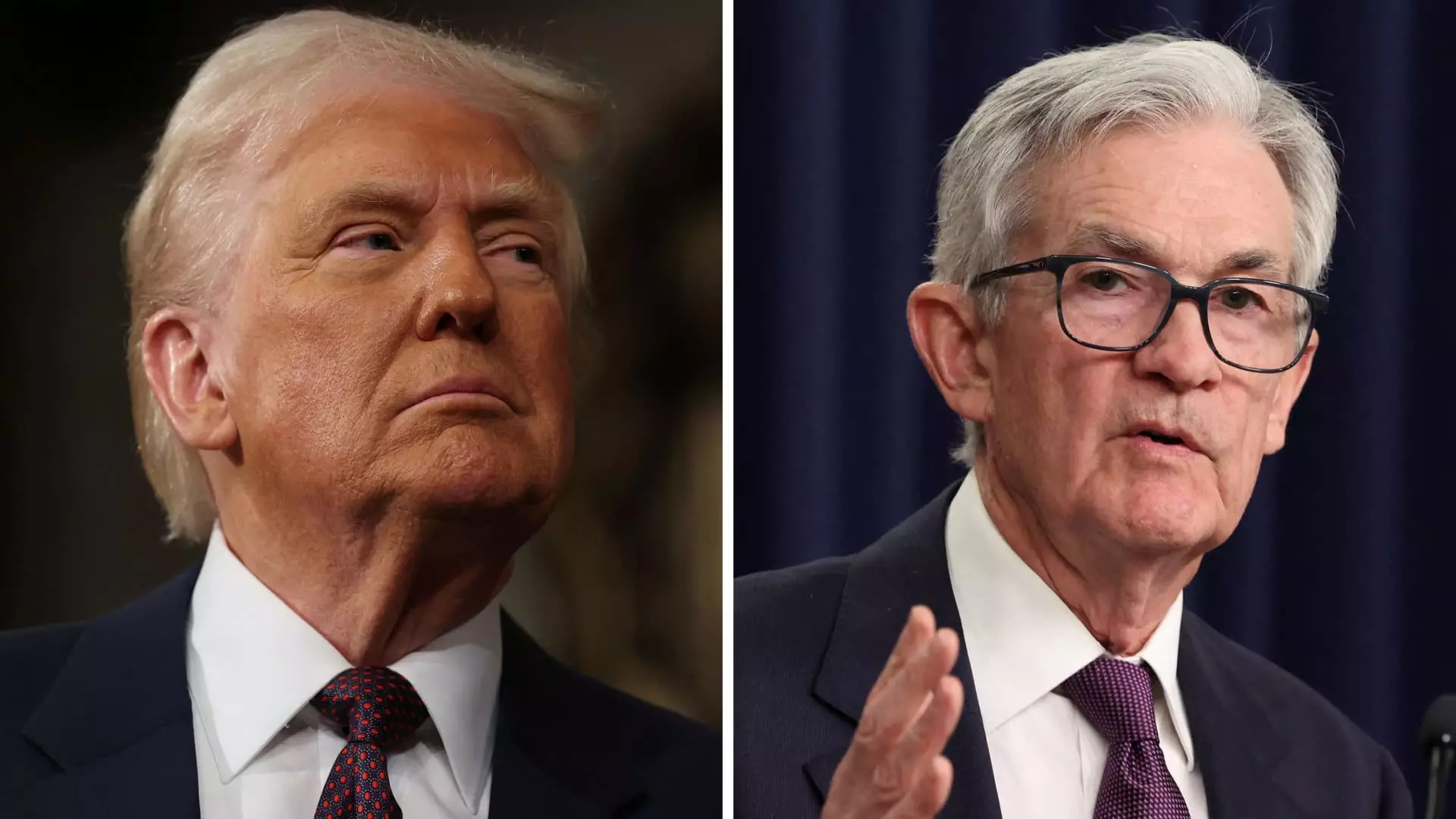Former President Donald Trump’s latest foray into the intricacies of U.S. economic policy raises alarming questions about the role of politics in shaping monetary decisions. By openly advocating for the Federal Reserve to cut interest rates, Trump is not just expressing a partisan opinion; he is exerting undue pressure on an institution designed to function independently of political whims. Such interference can erode public trust in the Federal Reserve’s ability to manage the economy effectively. The underlying premise of an autonomous central bank is that it makes decisions based on economic data and forecasts rather than external pressures, which leads to more stable economic conditions in the long run.
Jerome Powell: The Target of Trump’s Anger
Trump’s pointed remarks about the potential “termination” of Jerome Powell as Fed Chair mark a dangerous precedent. This is not merely about economic critique; it insinuates a desire to control the leadership of a crucial institution that dictates fiscal policy. Calling for someone’s ousting because their strategies do not align with one’s agenda undermines the structural integrity of governance. Powell has asserted that the law prevents the president from firing him, a fact that should offer some reassurance. Yet, Trump’s continued public berating contributes to a toxic atmosphere that prioritizes partisan loyalty over professional competence.
Comparisons with Global Peers
Trump also draws attention to the European Central Bank’s recent rate cuts, suggesting that America’s economic policy should follow suit. While it’s tempting to draw parallels between nations, the complexities of each economy are vast. The Eurozone faced its own unique challenges requiring specific measures that may not be applicable to the U.S. In essence, using international economic trends to justify domestic monetary policy adjustments reveals a misunderstanding of macroeconomic principles. Encouraging rate cuts without solid evidence of their necessity can destabilize the very financial systems Trump claims to support.
The Tariff Dilemma
Trump’s comments come on the heels of discussions surrounding tariffs implemented during his administration. Powell pointed out the difficult position these tariffs placed the central bank in, as they are designed to manage inflation without sacrificing economic growth. Trump’s failure to acknowledge the broader economic implications of these policies demonstrates a troubling disregard for the complexity involved in national and global economies. The consequences of tariffs can ripple through various sectors, impacting everything from job growth to consumer prices—issues that warrant careful consideration beyond mere interest rate adjustments.
Implications for the Future
America’s economic stability hinges on a delicate balance of independence and accountability in its financial institutions. Trump’s persistent meddling in the Federal Reserve’s decisions risks undermining this balance. As a proponent of center-wing liberalism, it’s crucial to advocate for sanctity in economic frameworks, free from political interference that could pave the way for misguided policies. The call for continuous rate cuts, as suggested by Trump, may bring immediate relief but risks long-term ramifications that could harm the economy as a whole. In politics, as in economics, a well-calibrated approach informed by data rather than ambition is vital for sustainable growth.

